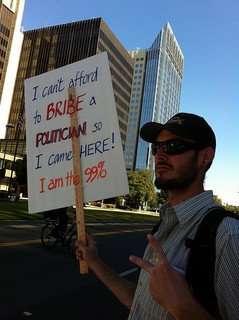They call it “Factors Influencing Voluntary Compliance by Small Businesses[pdf],” and the report comes from IRS (actually “an independent organization within IRS,” whatever that means), and so you know that it’s referring to compliance with Federal income tax laws and regulations.
The focus on small business makes sense, since folks on payrolls or pensions generally can’t hide much of their income, and large corporations can obtain legislative action or legal advice providing their own loopholes. Two surveys were done, one of small businesspeople nationwide for whom, statistically, an audit would be expected to result in additional tax payments, and the other of small businesspeople in communities from which a high proportion of such returns was filed. (NOTE: When wooing their votes we call them “entrepreneurs” or “job creators,” but that would not be dainty when we are considering them “tax cheats.”) These “low compliance” folks were supplemented by a survey of those expected to be “high compliance.”
I see two surprising results in this report. First, on most attitude measures there’s little difference between the “low compliance” and “high compliance” respondents. For example, only 15% of the “low” group thought that federal tax laws were fair, and the same proportion of the “high” group agreed. Differences that did appear were fairly small. “Wealthy taxpayers minimize their taxes in ways the average taxpayer cannot” was agreed with by 74% of the “low compliance”‘ group, and 69% of the “high compliance” people.
An even bigger surprise, to the IRS analysts as well as this blogger, is that “low compliance” seems to be associated with greater participation in their local communities, including churches, schools, volunteer organizations, and even were more likely to vote than “high compliance” people. I hesitate to speculate on what this means, but it is probably a positive for those of us who believe (along with most respondents) that federal government is not an appropriate way to deal with many of the areas it has become involved in.
The report acknowledges that the survey suffers from an indirect method: “Low compliance” merely indicates a statistical likelihood of same, not an actual lack of compliance by the respondent. Because a random selection of taxpayers are audited simply to calibrate the compliance-prediction model, it would have been possible to target these particular taxpayers for the survey. Of course they couldn’t be surveyed after their audits because they might be especially unhappy with IRS at that point. But they could have been surveyed just before being notified on the audit. IRS decided not to do that because they “deemed it overly deceptive.” However, the actual survey (done over the phone by a contracted private company), did not reveal that this was an IRS project until the conclusion, after the data had been gathered. That apparently was deemed just deceptive enough.
Not part of the published report is a list of “clusters of potential tax cheats” posted by AP but presumably originating with IRS. Apparently tabulated by zip code, here’s the Illinois portion of the list:
Bellwood, Calumet City, Dolton, Grand Crossing, Hazel Crest, Matteson, Maywood, Ogden Park, Phoenix, Riverdale, Roseland, South Chicago Heights, South Holland, University Park. I assume that folks in Oakbrook and Barrington Hills had already purchased their own loopholes.
